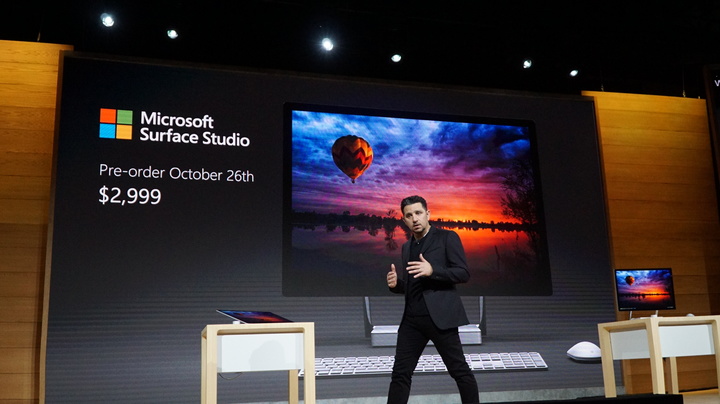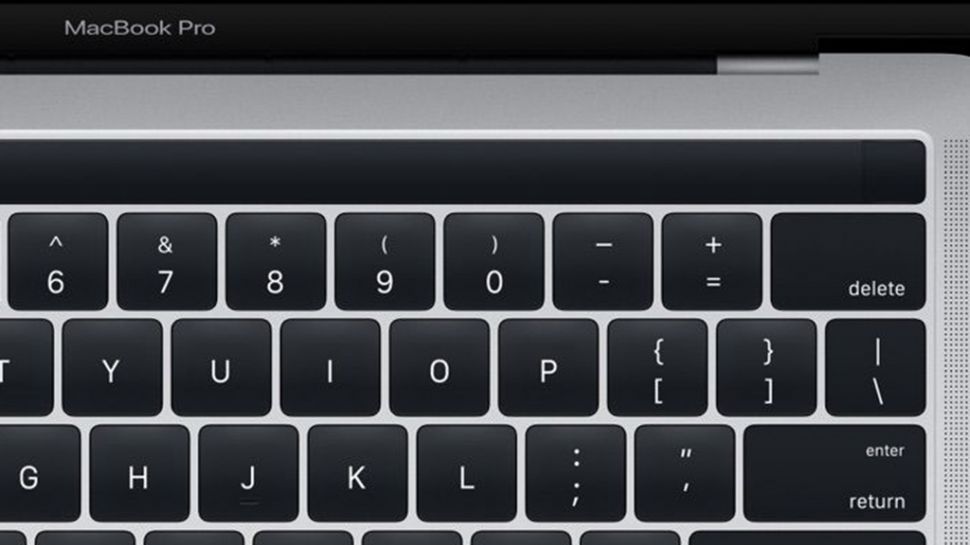Apple can no longer afford to ignore the pros, and I don't mean its MacBooks
Opinion: Apple needs to deliver this evening or face the consequences

You’re a creative pro with money to burn. Maybe you’re a hot music producer, or an in-demand architect, a gifted photographer, or a video editor, or a CAD wizard. You need the best, most beautiful, most powerful, most intuitive computer around.
You need… a Microsoft Surface Studio?
Ladies and gentlemen and everybody in between, Hell has frozen over. The best tech for creative pros is made by Microsoft.
How on earth did that happen?
- These are the best PCs you can buy in 2016
Apple’s attention problem
The short answer is that Macs haven’t been a particular priority for Apple in recent years. Its computers may be beautiful, but they’re also pretty old. Apple’s entire Pro range - the MacBook Pro, Retina MacBook Pro, high-end iMac and Mac Pro - have been listed as “don’t buy” on all the best Mac buying guides for months and in some cases years, and no wonder: tonight’s MacBook Pro refresh will be the first significant change since 2012, and the Mac Pro hasn’t been touched since 2013.
Maybe it’s the pause before the storm of a platform change - Mac releases stalled for ages while Apple moved from PowerPC to Intel, and rumours suggest a move to ARM for at least some Macs in the not too distant future - but the more likely explanation is simpler: with the iPhone as the engine of its stellar performance, Apple forgot about the Mac. Maybe it was too excited by its Project Titan electric car, or its TV plans, or Apple Music.
That’s something the pro users haven’t been slow to notice, and it’s something that rivals have noticed too. HP has been targeting pro customers, as has Dell. But the most dramatic pitch to pro users happened last night: Microsoft’s announcement of the Surface Studio.
Sign up for breaking news, reviews, opinion, top tech deals, and more.
The rumours predicted some kind of all-in-one, a cross between a Mac Mini and an iMac with some sort of modularity to it. Nope. The Surface Studio is a lot more interesting than that. It’s a desktop that transforms into a touch-screen drawing board - something Apple applied for a patent for back in 2010 - and that offers a genuinely innovative approach to creative tasks.
I do a lot of computer music, so I’m looking at the Studio and imagining tilting it back to use it like a studio desk, swiping in a keyboard or drum machine to trigger some MIDI, whooshing the Surface Dial to change the sounds, like Logic Remote writ large. You might be an artist or illustrator, magazine designer or product designer, imagining similar uses for your own specific needs. It’s like the original Surface, without the pool-table dimensions.
In many ways the Surface Studio is offering what the iPad Pro does, but with much bigger ambitions. Yes, it’s expensive, but pro users tend to charge pro money - and they’re happy to pay well for tools that make their lives better. Check out the price of vintage guitars on eBay if you have any doubts.

Who’s thinking different?
Twitter was funny during the Microsoft keynote: as Panos Panay shared his obvious enthusiasm for the device and demonstrated its many wonders, initial boos soon became oohs. As Ars Technica’s Candy Cornningham put it, “Apple hasn’t been updating its computers so Microsoft is doing it for them.”
That’s an important point, because one thing we know about the Surface range is that Microsoft is laser-focused on keeping them ahead of the pack. If you buy a Surface Studio today you can be pretty sure that there’ll be an improved model (and because we’re talking about MIcrosoft, a roadmap telling you what’s next - that matters to pros who need to plan for the years to come) on a regular basis.
Can you really say that about Apple, whose Mac Pro languished for years before the dramatic update and which has languished ever since? “Can’t innovate, my ass” may have got laughs at the launch, but three innovation-free years later it doesn’t seem so funny.

Should Apple care about pros’ woes?
In purely financial terms, probably not. Pros are a much smaller market than, say, Chinese iPhone buyers. And Apple considered dumping the Pro range when the iMac was its most popular product. As Apple’s long-time advertising partner Ken Segall recently wrote, Steve Jobs felt that “consumer products have an unlimited upside, while pro products are aimed at a niche market that eats up major resources.”
But pro users aren’t like other customers. “Pros are opinion leaders, influencers and evangelists,” Segall wrote. “Their love of Apple shows up in the purchase decisions of friends, family and colleagues.” Jobs decided that dropping the pros didn’t make sense - but he didn’t say that Apple would service the pro market forever. Pros aren’t very profitable, and keeping them happy can be hard work.
Still, losing them would mean losing very loyal customers. If you look after them, they often become influencers or even evangelists. They’re the ones who bought Apple when Apple still had the word “Computer” in its name and red ink all over the balance sheet. They’re the ones who bought Macs with price tags ordinary people laughed at. And they’re the ones whose reflected glory many of us hope to bask in. I can’t be the only one who became hooked on Macs thanks to pro users’ evangelism. Losing those users might not hurt Apple in the short term, but it may well miss them in years to come.

So what will we see at the Apple reveal this evening? TouchID and context-sensitive OLED strips are perfectly fine, but they don’t improve render times or enable you to run more audio tracks and audio units than is necessary or sensible, and they won’t make pros go “woah!” As venerable tech reporter Andy Ihnatko of the Chicago Sun-Times put it, “Suffice to say that any Mac creator/pro who’s been wondering if Apple cares about you… yeah, look at Microsoft Surface Studio.”
Maybe we’re wrong. Maybe Apple has something special to show us, and we’ll have our iPod socks knocked off by today’s presentation. But Microsoft’s message to the pros is simple: If Apple doesn’t want you, we do.

Contributor
Writer, broadcaster, musician and kitchen gadget obsessive Carrie Marshall has been writing about tech since 1998, contributing sage advice and odd opinions to all kinds of magazines and websites as well as writing more than twenty books. Her latest, a love letter to music titled Small Town Joy, is on sale now. She is the singer in spectacularly obscure Glaswegian rock band Unquiet Mind.